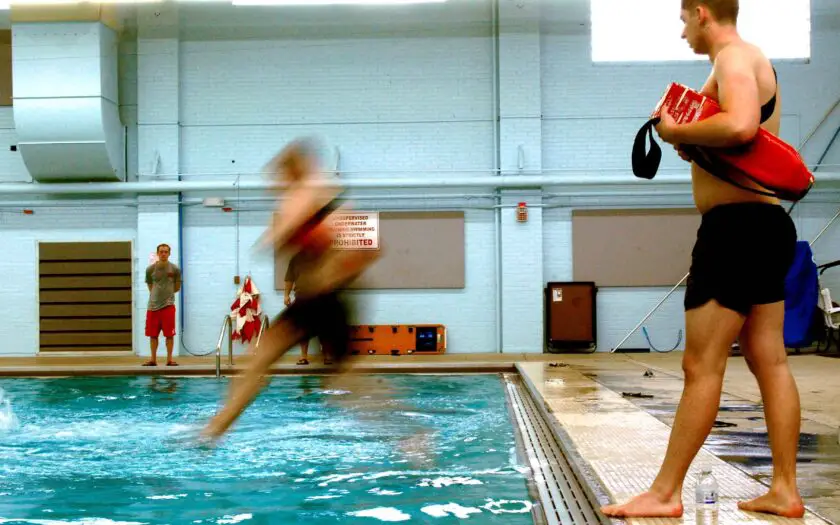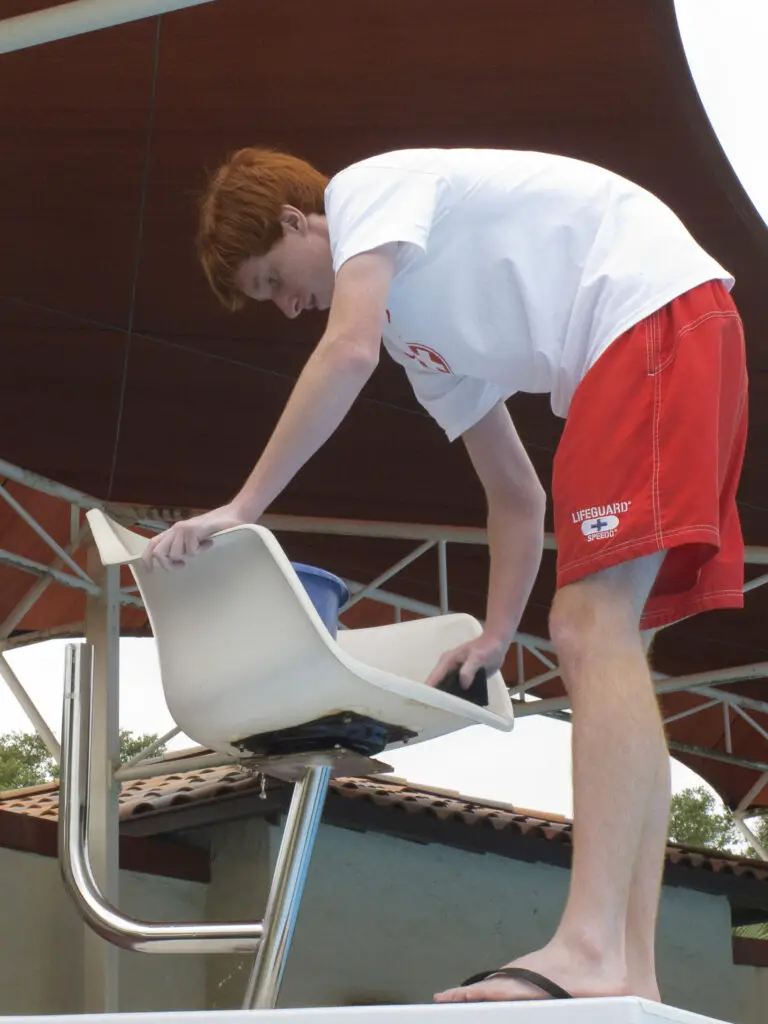We all know and love lifeguards – there is a lot of respect involving life-saving positions. Not everyone, however, understands everything the job entails. There are a lot of lifeguard responsibilities, and abilities that not everyone has. The best thing, though, is that lifeguarding is a job that will add valuable skills to your resume. Even for different jobs. But what should a lifeguard put on a resume?
If you are trying to land a lifeguarding job, congratulations! That is a fantastic thing to do and the perfect part-time job especially for high school or college students. To help you, we compiled some useful tips to make your resume reflect the responsible person you are.
Yes, a lifeguard needs to be attentive, physically fit, and know how to swim, but what else? There are plenty of skills that make a great lifeguard, and some are indispensable for writing a lifeguard resume.
Leadership.
Lifeguards need to deal with all kinds of people. They need to inspire trust and make difficult decisions on the spot. Without leadership skills all that can be very hard to achieve. Even if you didn’t work as a lifeguard before, it is worth to mention past leadership positions you held. You might have been the captain of a swim team, or taught swim lessons at your community swimming pool.
Communication.
In the middle of a crisis, a lifeguard must be clear and communicate well their needs to a large crowd. If you are an effective communicator, show that on your resume – both with examples and by how well written the CV is. Make yourself clear and to the point.
Alertness.
Even on a quiet day on the pool or ocean, a lifeguard must be alert to everything happening around them. A good lifeguard is a disciplined person, who is consistent with their performance. Include how quick your reactions are and how fast you jump to action. Years of experience can help, but good water safety starts with quick thinking.
Problem-solving.
It is a given that, as a lifeguard, you will encounter some difficult situations. Being able to come up with solutions in the middle of a high-stress environment is a valuable quality. Think back to the previous positions you held. Was there any difficult situation you dealt with? Any pickle you handled? Do you have any letters of recommendation that mention such a skill?
Training and hard skills for lifeguards
You can’t be a lifeguard without the proper training. Not only mention your training on your resume but prove it. The training includes subjects such as First Aid and CPR. They also teach how to identify warning signs and handle emergency situations. One of the best places to train is the Red Cross, but there are several other institutions that provide it. If you have certifications or training, include these in the education section.
If you’ve successfully completed your training, you know that there is a lot involved. Beach hazards, in-water self-defense, advanced CPR skills, and much more. On your resume, don’t simply name the training you underwent. Elaborate on the useful skills you gained and share your results for each area. Combine the lifeguards training with your personality traits and impress. It is also a good idea to highlight pieces of training you think are a fit for this particular job. For example, a children’s pool will have different requirements than a public beach.
As a lifeguard, you’ll deal with a lot of equipment like rescue tubes and emergency oxygen kits. The employer wants to hire someone with expertise on them, so make sure to mention that on your resume. They also want to make sure you passed the training’s physical and written tests. Don’t be shy and include your scores on your resume- they are great resume builders!
Writing tips for your resume
If you are looking for your first job as a lifeguard, an appealing resume will go a long way. The best way yo make up for a lack of work experience is to show enthusiasm and to have a structured resume and cover letter. We know you are a lifeguard, not a novelist, but writing well can turn you into a contender for a job. Here are some writing techniques anyone can follow to get hired asap.
Read the job description carefully
That may seem obvious, but it isn’t. Many job seekers simply skim trough job offers and send a standard cover letter plus resume to all of them. Go further – read the description and get into the mind of the employer. These questions can help you make your resume objectives. What do they value? What age group is more likely to use the pool/ocean? Did they mention any skills they need? Use this info to personalize your resume in a subtle manner, and stand out from a pile of generic Joes.
Choose strong words
Strong words play tricks on our minds. They make our writing feel persuasive and trigger emotional responses in our brains. For example, action words make you sound like a proactive, diligent person. Some of them can be: led, assisted, created, developed, built, won. Try to include these verbs in your resume, even if the job or activity was not related to lifeguarding.
If you are describing yourself or your achievements, do so with positive words. Hardworking, motivated, willing to grow, and dependable all get great responses from employers.
Use paragraphs, bullet poins and consistent fonts
Nobody wants to read a huge block of text with no visible breaks- those make for a terrible resume format. A disorganized resume will likely be dunked straight in the trash – even if what it says is relevant. While writing, make use of paragraphs and correct punctuation – that will make the reader enjoy it. Use bullet point lists when appropriate, and be careful to keep a consistent tone. Times New Roman is still the most professional font to use. There’s nothing wrong with innovating though, as long as it looks good- there are millions of resume templates and even lifeguard resume samples that you can look at for inspiration.
Write in a positive way – sell yourself
The bottom line is to carve yourself as a promising employee from the start. The biggest trick about writing a resume is to make the employer imagine you doing the job – even before contact. You know your worth – sound responsible, capable and confident.
Hotels, private pools, and summer camps are always looking for trained lifeguards. Alternatively, you can work for the state and become a beach lifeguard. This is a little more demanding but very interesting. Serious jobs will offer refresher training every year – a great way to stay current!
Life-guarding is a job where your personal traits play just a big a role than your hard skills. It can be very rewarding but also very demanding, so take a look at your personality before going this route. If all this makes you excited, go for it!
Love sports and the outdoors? Check out these other great articles:


